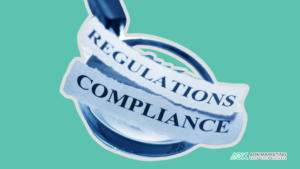One of the top questions I get when discussing SEO and paid media is:
How do regulations impact digital marketing in industries like finance and healthcare?
If you’ve ever run a campaign in either space, you already know:
You can’t just say whatever you want.
Strict rules and legal boundaries control everything — from ad headlines to landing page copy. Break the rules, and you risk ad disapproval, account suspension, or worse.
Still, here’s the good news:
Regulations don’t block performance. They sharpen it.
Let me explain how that works in the real world.
Why You Can’t Say Just Anything
Highly regulated industries are built on trust and oversight. In the UK, marketers answer to the Financial Conduct Authority (FCA). In the U.S., the FDA, FTC, and other bodies play a similar role.
These rules exist to protect consumers from misleading claims. While that might seem restrictive, they actually force marketers to do something powerful — be clear, honest, and credible.
Case Study: A Credit Card Launch That Beat the Odds
We helped DND Finance roll out the Score Mastercard in the UK. Their audience? Underserved borrowers and faith-based consumers looking for ethical financing.
Marketing this product came with plenty of limitations. The FCA strictly prohibits phrases like “guaranteed approval” or vague offers buried in fine print.
So here’s what we did instead:
– Built landing pages tailored to each audience segment
– Focused messaging on transparency, community values, and outcomes
– Ensured every word met FCA requirements before going live
As a result, we reduced cost per acquisition (CPA) from a $5 target to just $1.60 — a 68% drop, fully compliant and highly effective.
Trust and Performance in Cybersecurity Marketing
Another strong example comes from PacketLabs, a cybersecurity firm navigating data privacy regulations.
To win in this market, we leaned into trust-first positioning. That meant:
– Transparent pricing
– Clear privacy disclosures
– Messaging built around proven expertise
The return? They closed clients worth $57,000+ each, with an average CPA of around $5,500. Not bad for a high-ticket, high-trust service.
Clearly, trust isn’t just a legal requirement — it’s a revenue driver.
Healthcare Spotlight: Advertising Semaglutide (Ozempic, Wegovy)
Let’s look at healthcare, where compliance rules are even tighter. Specifically, let’s talk about GLP-1 medications like Semaglutide.
These drugs are popular for weight loss, but the advertising rules are strict. You can’t promise fast results. You can’t use dramatic transformations. You definitely can’t call it a “miracle cure.”
So, what works?
– Focus on science-backed education
– Include clear disclaimers and qualified medical references
– Build funnels that guide users to licensed consultations
By using curiosity-based ads paired with credible, informative content, we’ve helped clients stay compliant — and profitable.
The Big Picture: Compliance Builds Trust — and Trust Converts
Marketers often see rules as roadblocks, even in digital marketing services. In reality, they can be a competitive advantage.
Here’s why:
– Regulations eliminate shady tactics that confuse buyers
– Clear messaging earns respect
– Transparent brands build deeper loyalty
If your competitors are being vague or flashy, you win by being honest and helpful.
The 3-Part Digital Marketing AOK Strategy for Regulated Success
Here’s how we consistently deliver results in strict industries:
1. Lead With Trust
Skip exaggerated claims. Instead, use plain language, verifiable results, and real reviews.
– Provide case studies or testimonials
– Display third-party accreditations
– Offer clarity at every step
When people trust your brand, they trust your offer.
2. Segment With Precision
Different customers need different messaging — especially when regulations vary by region or audience.
– Match digital marketing campaigns to demographic needs
– Adjust tone and content for each group
– Stay within legal frameworks for every segment
Smart segmentation means fewer compliance risks — and better ROI.
3. Educate Throughout the Funnel
If your ad can’t say much, let your landing page and content strategy do the talking.
– Create informative resources
– Use video, blog posts, and FAQs
– Provide expert answers and next steps
Education nurtures trust and primes people to convert.
 In Summary
In Summary
Proof
– DND Finance slashed CPA by 68% with FCA-compliant messaging
– PacketLabs earned high-value clients by prioritizing trust and transparency
– Semaglutide campaigns succeeded through education, not hype
Promise
Regulations aren’t a barrier — they’re a filter. When your message plays by the rules, it becomes more powerful and more trusted.
Plan
– Lead with trust
– Segment precisely
– Let your funnel educate and convert
About The Author
Dave Burnett
I help people make more money online.
Over the years I’ve had lots of fun working with thousands of brands and helping them distribute millions of promotional products and implement multinational rewards and incentive programs.
Now I’m helping great marketers turn their products and services into sustainable online businesses.
How can I help you?
 In Summary
In Summary


